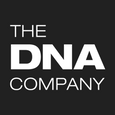As we age, countless processes in our bodies begin to change, some more subtly than others.
One of the most significant, yet lesser-known, is methylation decline. This process, which affects everything from gene expression to detoxification, can play a pivotal role in how we age and how we feel.
Let’s dive into what methylation decline is, how it manifests, and what you can do about it to support your health and longevity.
What Is Methylation and Why Does It Decline?
Methylation is a biochemical process where a methyl group (one carbon and three hydrogen atoms) is added to molecules in the body, enabling critical functions such as:
- Regulating gene expression.
- Supporting detoxification pathways.
- Maintaining DNA stability and repair.
- Producing energy and neurotransmitters.
Over time, the efficiency of this process can decline due to factors like poor diet, stress, environmental toxins, and natural aging.
When methylation systems are not working optimally, it can lead to disruptions in key biological functions, contributing to chronic health issues and accelerating the aging process.
Symptoms of Declining Methylation
The effects of methylation decline can vary, but common symptoms include:
- Fatigue and low energy: Methylation is essential for producing cellular energy.
- Cognitive issues: Memory lapses, brain fog, and mood imbalances are often linked to suboptimal methylation.
- Immune dysfunction: Reduced methylation can impair the immune system’s ability to fend off illness.
- Poor detoxification: Difficulty processing toxins can lead to symptoms like skin issues, digestive problems, or headaches.
- Accelerated aging: Visible signs like skin changes or hair thinning, as well as cellular aging, may be linked to diminished methylation efficiency.

Actionable Solutions to Support Methylation
The good news is that you can take steps to optimize methylation, even as you age. Here’s how:
Prioritize a Nutrient-Rich Diet
- Key nutrients: Folate, B vitamins (B6 and B12), and betaine are essential for methylation.
- Foods to focus on: Leafy greens, legumes, eggs, fish, and beets.
Reduce Toxin Exposure
- Minimize exposure to chemicals in cleaning products, cosmetics, and processed foods. Incorporate natural detoxifiers like cruciferous vegetables and plenty of hydration.
Manage Stress
- Chronic stress can disrupt methylation efficiency. Incorporate practices like meditation, yoga, or mindfulness.
Supplement Smartly
- Consider methylation-supporting supplements like methylfolate, methylcobalamin (B12), and SAMe, under the guidance of a healthcare provider.
Regular Physical Activity
- Exercise promotes better circulation and metabolic health, which can indirectly support methylation.
Methylation and Its Link to Telomere Length
Telomeres, the protective caps at the ends of your chromosomes, serve as essential guardians of your DNA. With each cell division, these caps naturally shorten, a process closely linked to aging.
While telomere shortening is a normal part of life, declining methylation can significantly accelerate it. Methylation is vital for maintaining DNA stability and enabling efficient repair mechanisms, both of which play a crucial role in protecting telomeres from premature degradation.
When telomeres shorten too quickly, it triggers cellular aging, leading to a cascade of effects such as reduced immune function, increased oxidative stress, and heightened susceptibility to age-related diseases like cardiovascular conditions, neurodegenerative disorders, and cancer.
By actively supporting methylation through proper nutrition, stress management, and targeted interventions, you’re not just promoting DNA integrity—you’re also helping to preserve telomere length.
This preservation is more than just a molecular detail; it’s a critical factor in healthy aging, enabling your cells to remain functional for longer, reducing disease risk, and fostering resilience in the face of life’s biological challenges.
The Role of Biological Age Testing
Biological age testing, often based on epigenetic markers, offers valuable insights into how well your methylation systems are functioning. These tests can reveal whether your body is aging faster or slower than your chronological age, providing a roadmap for targeted interventions.
Understanding your biological age can help you:
- Identify areas where methylation may need support.
- Implement personalized strategies to optimize health and slow aging.
- Track progress over time, validating the effectiveness of your wellness practices.
Methylation decline doesn’t have to dictate your health or how you age. By understanding this process and taking proactive steps to support it, you can improve energy levels, protect your DNA, and even preserve telomere length—key factors in slowing biological aging and promoting overall wellness.
One of the most effective tools for monitoring your progress is biological age testing, which provides a snapshot of how well your body is aging on a cellular level. Tests like our DNAging Biological Age Test offer unparalleled insight into your genetic and epigenetic health by analyzing methylation patterns and other biomarkers that influence aging.
How DNAging Helps You Track and Optimize Aging
Our DNAging Test measures biological age by evaluating your DNA’s methylation profile. This test offers several benefits:
- Identify Areas for Improvement: Understand how lifestyle, diet, and environment may be accelerating your aging process and pinpoint where changes are needed.
- Personalized Health Strategies: Gain actionable insights into your methylation efficiency and how it impacts detoxification, inflammation, and energy production.
- Track Progress Over Time: Regular testing lets you monitor the effectiveness of interventions, ensuring you’re making meaningful progress toward your health goals.
- Preserve Longevity: By identifying and addressing factors that contribute to aging, you can take targeted actions to extend your healthspan and live a vibrant, fulfilling life.
Take Control of Your Aging Process
Incorporating lifestyle changes like stress management, regular exercise, and a nutrient-rich diet is crucial for supporting methylation and overall health.
Combining these efforts with biological age testing, such as DNAging, gives you a clearer picture of your progress and keeps you on track toward optimal aging.
Invest in your health today by leveraging cutting-edge tools like our DNAging Test. Your future self will thank you for the energy, vitality, and longevity you gain by taking control of your biological age now.
Learn more about DNAging and start your journey toward a healthier, younger you.

